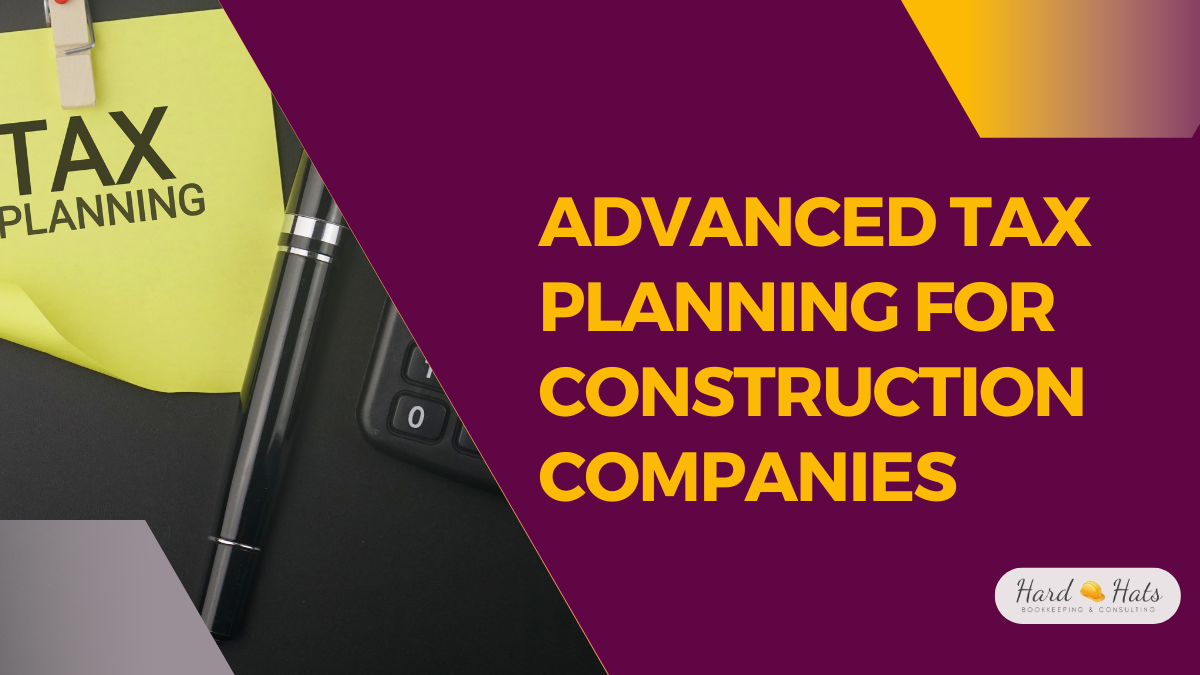
CONSTRUCTION BOOKKEEPING INSIGHTS / OCT. 11, 2024
Effective tax planning is crucial for the financial health and success of construction companies. The construction industry faces unique tax challenges and regulations that require careful navigation to optimize tax efficiency and minimize liabilities. By delving into key tax considerations and providing actionable insights, we aim to equip construction professionals with the knowledge and tools necessary to enhance their tax planning efforts and ultimately drive their businesses towards greater financial prosperity
Construction companies can often find themselves in a tax quagmire if not careful. Construction is rife with unique tax challenges, from fluctuating income to complex regulations. Understanding the tax implications in the industry is crucial for financial stability. Construction companies face a plethora of tax challenges, including managing cash flow, dealing with subcontractors, and navigating the maze of deductions and credits. Tax headaches can arise from delayed payments, project delays, and the seasonality of the construction business.
Navigating the tax laws and regulations affecting the construction sector requires a hard hat and a solid understanding of tax codes. From the nuances of the Tax Cuts and Jobs Act to compliance with IRS regulations, construction companies must stay abreast of the ever-changing tax landscape. When it comes to tax planning for construction companies, a proactive approach is key. Maximizing savings requires strategic thinking and utilizing specific tools and techniques tailored to the industry. Proactive tax planning involves forecasting income, managing expenses, and exploring deductions to minimize tax liabilities. Construction companies can leverage strategies like income deferral, cost segregation, and capitalizing on tax credits to optimize savings.
To maximize tax benefits through credits and incentives, construction companies must identify eligible programs, track compliance requirements, and strategically apply for incentives. By optimizing tax benefits, companies can enhance project profitability and competitiveness.

Choosing the right business entity can significantly impact a construction company's tax liabilities and financial health. Understanding the tax implications of different business structures is crucial for maximizing tax efficiency in the industry. Construction companies can opt for business entities like LLC's, S-Corporations, or Partnerships to benefit from pass-through taxation, limited liability protection, and flexibility in profit distribution. Selecting the right business entity can result in significant tax advantages and operational efficiencies.
Each business structure in the construction industry comes with its own set of tax implications, compliance requirements, and operational considerations. From tax treatment of profits to owner's liability, understanding the tax nuances of different business structures is essential for optimal tax efficiency.
Advanced tax planning is a vital component of financial management for construction companies, offering opportunities to optimize savings and enhance profitability. By proactively addressing tax challenges, leveraging incentives, structuring entities wisely, and staying compliant with regulations, construction firms can position themselves for long-term success. Continued monitoring and adjustment of tax strategies are essential to adapt to changing laws and maximize benefits. With a strategic approach to tax planning, construction companies can achieve greater financial stability and growth in a competitive industry landscape.
SHARE THIS
COMMENTS
